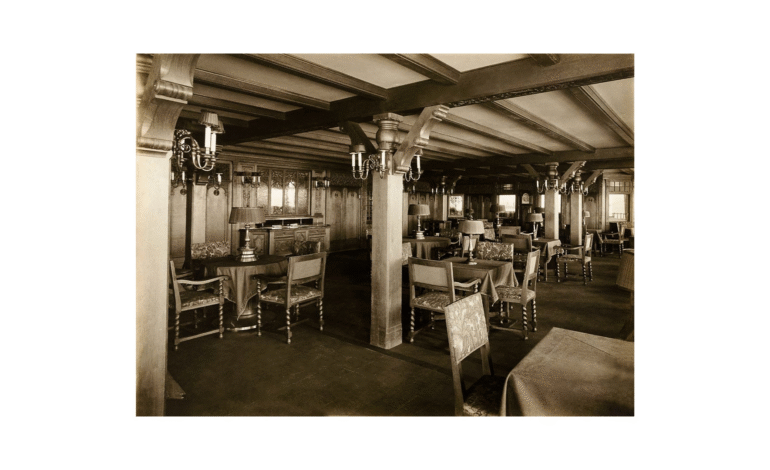Best Paying Jobs in Consumer Non-Durables
Best Paying Jobs in Consumer Non-Durables: Top Roles, Salaries, and Career Paths
The consumer non-durables industry is one of the most consistent employers in the global economy. While not as flashy as tech or finance, it provides essential products—everything from food and beverages to personal care and cleaning supplies. Behind every bottle, snack, or skincare product is a network of professionals working across manufacturing, marketing, research, logistics, and sales. Many of these roles come with high compensation, especially in multinational firms.
If you’re looking for a career path that combines stability, global demand, and competitive salaries, this guide to the best paying jobs in consumer non-durables will help you understand your options. Whether you’re a recent graduate or a mid-career professional considering a switch, there’s likely a role that aligns with your strengths.
Table of Contents
What Are Consumer Non-Durables?
Consumer non-durables are products meant for immediate or short-term consumption. Unlike durable goods (such as cars or furniture), non-durable goods are used up quickly—think shampoo, soft drinks, packaged snacks, or toothpaste. This category includes several major sectors:

- Food and beverage
- Personal care
- Household cleaning
- Tobacco products
- Cosmetics and fragrances
These goods are essential and constantly replenished, creating a stable cycle of production and consumption. As a result, careers in consumer non-durables span everything from product development and quality control to brand strategy and regulatory affairs.
The industry is dominated by giants like Procter & Gamble, Nestlé, Unilever, Coca-Cola, and L’Oréal, but also includes fast-growing niche brands. With global distribution, large marketing budgets, and the need for innovation, it’s no surprise that many of the highest paying roles in FMCG (fast-moving consumer goods) are concentrated here.
Top Paying Roles in FMCG and Packaged Goods
Some positions in the non-durable goods industry command six-figure salaries, especially at mid to senior levels. These are often tied to strategic decision-making, product performance, or innovation. Below are some of the most lucrative roles in this field:
1. Brand Manager
Average Salary: $95,000–$130,000
Brand managers oversee the positioning, promotion, and performance of individual products or product lines. In top firms, these roles are treated like mini-CEO positions. Professionals in this role work with marketing, R&D, supply chain, and finance teams to align execution with brand vision.
2. Research & Development (R&D) Director
Average Salary: $120,000–$160,000
R&D leaders are crucial in developing new product formulas or improving existing ones. In personal care, cosmetics, and food science, innovation is key to staying competitive. These roles often require advanced degrees and years of lab or technical experience.
3. Regulatory Affairs Manager
Average Salary: $90,000–$125,000
Companies need to ensure that their products comply with international and local regulations. Regulatory managers handle product labeling, health and safety standards, and market approvals—especially critical for products like cosmetics, infant foods, and cleaning chemicals.
4. Supply Chain Director
Average Salary: $110,000–$145,000
Supply chain leaders coordinate the production, transportation, and storage of goods. In consumer non-durables, where margins and timing are tight, efficiency in supply chain logistics can make or break profitability.
5. Sales Director (FMCG Sector)
Average Salary: $100,000–$150,000 + bonuses
Sales leadership roles come with high base salaries and performance-based incentives. These professionals are responsible for growing key accounts, managing regional sales teams, and optimizing revenue in competitive retail spaces.
These are only a few examples of top salaries in consumer goods, and there are also lucrative positions in packaging, digital marketing, product design, and category analysis.

Skills and Qualifications That Lead to High-Paying Jobs
Landing one of the best roles in consumer packaged goods typically requires a combination of education, experience, and industry-specific knowledge.
Educational Backgrounds:-
- Business administration or marketing for brand and sales roles
- Chemistry, biology, or engineering for R&D and product development
- Supply chain or logistics management for operations
Many senior positions also prefer candidates with MBAs or master’s degrees, especially when applying to global corporations.
Key Skills:-
- Cross-functional project management
- Data-driven decision-making (especially in market analytics)
- Regulatory and legal understanding
- Technical formulation skills (in food or cosmetics)
- Communication and stakeholder coordination
Professionals who master these competencies are more likely to enter high-income positions in non-durable sectors and advance toward leadership tracks.
Career Growth Opportunities in Non-Durable Goods
One of the major advantages of the non-durable goods sector is its layered structure. You can begin in a junior analyst or associate role and rise through the ranks based on performance, not just tenure. Many companies have structured development programs for new graduates and actively promote internal talent.
For example:
- A marketing analyst can grow into a brand manager, and then into a marketing director
- A quality control chemist may progress into product development and later into global R&D strategy
Since these products have a short lifecycle and constant demand, companies in this space require continuous innovation and leadership, fueling opportunities for advancement.
The FMCG career growth opportunities are especially strong in multinational firms, which offer regional and global leadership positions, often involving cross-border responsibilities and travel.

Why Consumer Non-Durables Remain a Resilient Career Choice?
The industry’s strength lies in its necessity. People will always need food, toiletries, cleaning products, and daily essentials. While luxury sectors or tech may experience ups and downs, employment in packaged goods companies tends to remain stable—even during recessions.
The growing emphasis on sustainability, health-conscious innovation, and digital transformation is also opening new roles in data science, ethical sourcing, and green packaging. These additions are increasing the earning potential and variety of roles within the sector.
For professionals seeking job security, global reach, and opportunities to make meaningful contributions, careers in consumer non-durables offer a reliable and rewarding path.
The best paying jobs in consumer non-durables blend stability, innovation, and impact. From R&D and branding to logistics and regulation, this diverse industry needs skilled professionals who can drive value across the supply chain. As consumer habits evolve and global demand grows, the sector continues to reward talent with competitive salaries and clear advancement opportunities.
If you’re exploring career paths that offer both purpose and profit, this industry deserves serious consideration.

FAQ’s for Best Paying Jobs in Consumer Non-Durables
1. What qualifies as a consumer non-durable good?
Consumer non-durables are products meant for quick or short-term use. This includes food, beverages, cosmetics, personal hygiene items, and household supplies—items that are consumed or replaced frequently.
2. Are FMCG jobs good long-term careers?
Yes. The fast-moving consumer goods industry offers structured career growth, competitive salaries, and stable employment due to ongoing demand for essential products.
3. What are the top companies offering high-paying jobs in this field?
Leading employers include Nestlé, Unilever, Procter & Gamble, PepsiCo, L’Oréal, and Colgate-Palmolive. These global brands often offer the highest salaries and advancement potential.
4. How much do brand managers in consumer goods earn?
Salaries for brand managers range from $95,000 to $130,000 depending on experience, location, and the size of the company. Additional bonuses and stock options are common in larger firms.
5. Is the non-durable goods industry future-proof?
Yes. The industry benefits from constant consumer demand and is rapidly evolving with innovations in health, sustainability, and e-commerce, making it a solid long-term choice.




